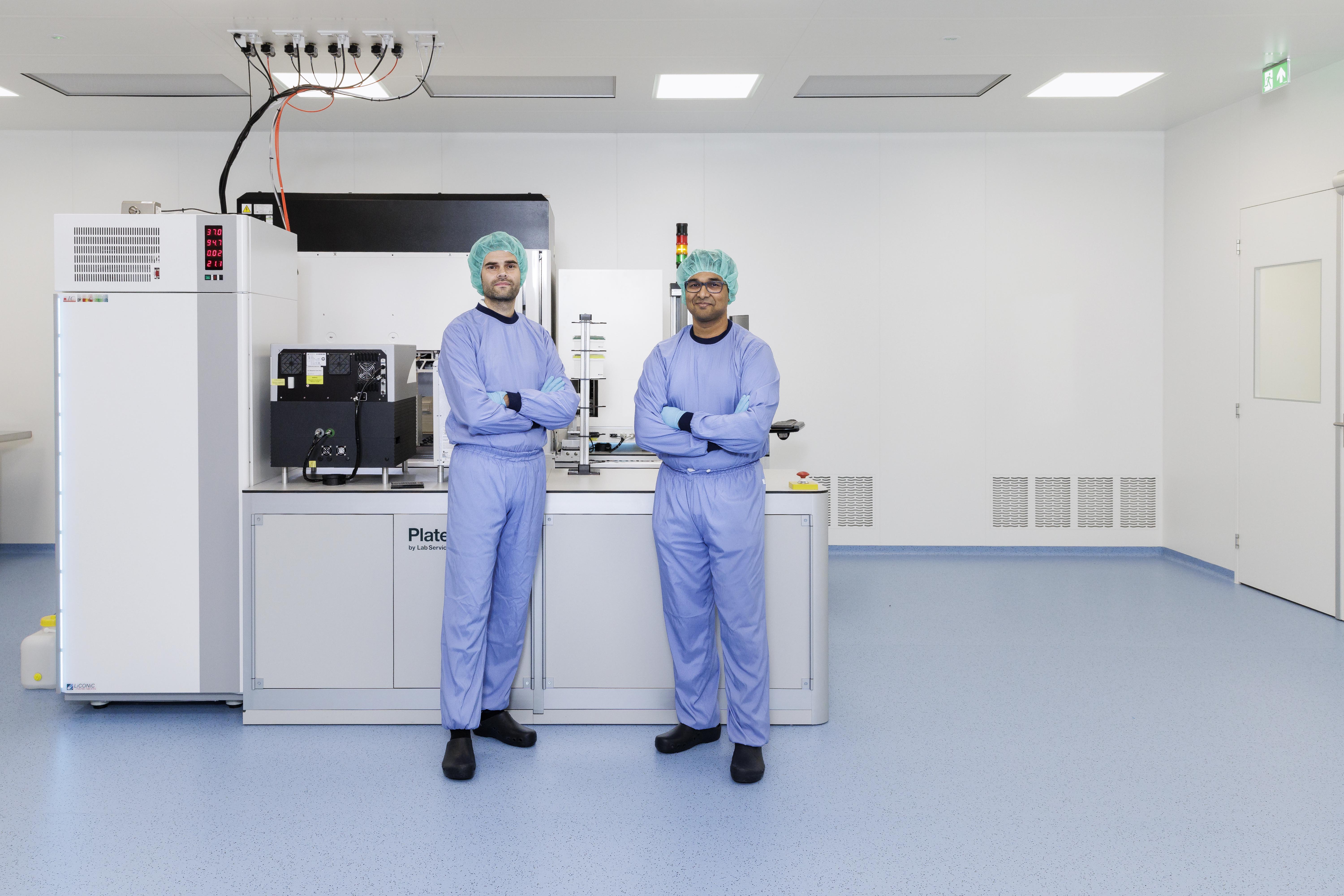ReGEN Biomedical: accelerating regenerative medicine
In Europe, particularly in the Netherlands, RegMed XB is gearing up to take on the United States, Japan and Israel in the field of regenerative medicine. ReGEN Biomedical—affiliated with Maastricht University and a spin-off of RegMed XB—is building a facility to grow human tissue that will one day be used to repair failing organs, cartilage and muscle.
According to operations manager Tom Mastenbroek, regenerative medicine is nothing short of a paradigm shift. “We’re going to see a transition from treatment to recovery: from care to cure. Cell therapy will enable doctors to repair or reconstruct organs and muscles. They’ll be able to repair damaged heart tissue, reconstruct cartilage, rebuild parts of the eye, and eventually grow more complex organs like kidneys. It’s the future of medicine. In our international team at ReGEN Biomedical, people of five different nationalities are working hard to make this future a reality.”
Collaboration and long-term vision
ReGEN Biomedical is a spin-off of RegMed XB, a consortium founded in 2017 consisting of leading health funds, 30 companies, national and regional authorities, and five universities: Leiden, Utrecht and Maastricht, plus Eindhoven University of Technology and KU Leuven. Their collaboration resulted in the establishment of a pilot factory with four product lines, including ReGEN Biomedical. Each partner brings its own strengths to the table.
“Collaboration and a long-term vision are critical to success,” says Mastenbroek. “Each of our four pilot production facilities has its own focus. Together, our ultimate goal is to print organs and grow tissue from human cells. We still have a long way to go—especially when it comes to growing more complex tissues—but stem-cell and gene therapy are gradually making their way into clinical practice.”
Macro-tissues
Two years ago, technological manager Ravi Sinha was tasked with building an entire pilot production factory. “The challenge was to automate the production process as far as possible. Regenerative medicine is still very labour intensive, with lots of people working in labs. The field offers great potential and opportunities, but costs are a critical factor. Automation is key.”
“We’re drawing on the knowledge of Maastricht University, particularly its research institutes CARIM and MERLN, but we’re targeting a broad international market,” adds Mastenbroek. “For example, CARIM is conducting research on the regeneration of cardiovascular tissue after a heart attack. We’re working closely together to show that we can produce heart-muscle cells.

“But for us, it’s not just about growing human tissue. We’ll also make our equipment available to other companies. Innovation in regenerative medicine is complex and capital intensive. You need labs, state-of-the-art cleanrooms, specialists. To make investments like that, startups have to secure substantial funding; even established pharmaceutical companies have to weigh up the pros and cons. With our facilities, we aim to become a collaborative partner offering services to others in the field. We want to accelerate this new medical paradigm, foster ideas and innovations, and facilitate the transition from lab to patient for large and small parties alike. From reliance on subsidies to commercial viability.”
Automation
Sinha proudly shows off the various cleanrooms, featuring equipment from suppliers from the Netherlands and abroad. This is where human cells and other materials are processed and stored. The heart of ReGEN Biomedical is the cleanroom where the actual production takes place, carried out by an automated system. It was configured by Sinha and his international team, including software they developed themselves. Entirely automatically, the system places cells into thousands of tiny compartments, feeds them, and combines them to grow into small tissue slices. “These slices will initially be used for personalised drug screening—and, one day, to heal patients.”
Moonshot
Enthusiasm aside, Mastenbroek is keen to play down the high expectations. “We’re at the very beginning of this process. Compare it to the 1960s, when we wanted to go to the moon. It seemed impossible, but we did it. Regenerative medicine is a moonshot. We know it’s possible, but there are still many obstacles to overcome. Every step is progress. Together with the other facilities—biomaterials in Eindhoven, stem cell production in Leiden and personalised cell therapy in Utrecht—we’re aiming for the moon.”
Text: Jos Cortenraad
Photography: Paul van der Veer
ReGEN Biomedical was founded by professors Marianne van der Steen and Clemens van Blitterswijk.
Marianne will say farewell to RegMed XB next week. Since 2016, she served as the co-founder and director of RegMed XB.
Marianne van der Steen: “Collaboration between regions, universities and private parties on this scale is truly unique. Thanks to funding from the National Growth Fund and REACT-EU, ReGEN Biomedical is giving the Netherlands a genuine opportunity to compete with major hotspots like Boston, California, and Japan.”
Clemens van Blitterswijk: “Over the past eight years, the MERLN research arm has created over 150 jobs and been involved in many prestigious projects and publications. We’re now turning our focus to achieving the same level of success in commercial applications. ReGEN Biomedical represents a significant step that will form the backbone of a robust commercial regenerative-medicine ecosystem in Limburg.”
Also read
-

Can digital twins of the heart provide personalized care for heart disease patients? In this Science Story, dr. Nick van Osta explains his research.
-

SBE alum Lisette van Doorn has dedicated her career to advancing leadership and education in real estate. As CEO of ULI Europe, she leads initiatives like the Global Leaders Programme, co-developed with Maastricht University and MIT, supporting mid-career professionals in real estate. Van Doorn emphasizes multidisciplinary collaboration and uses a holistic approach in urban development. Her leadership journey reflects her commitment to open-minded growth, strategic problem-solving, and championing sustainability, affordability, and educational priorities for future industry leaders.
-

In nature, large-scale aggression is rare, but it can take hold when space and food become scarce. Researchers from the University of Amsterdam, Maastricht University, and their international colleagues show how this can happen.